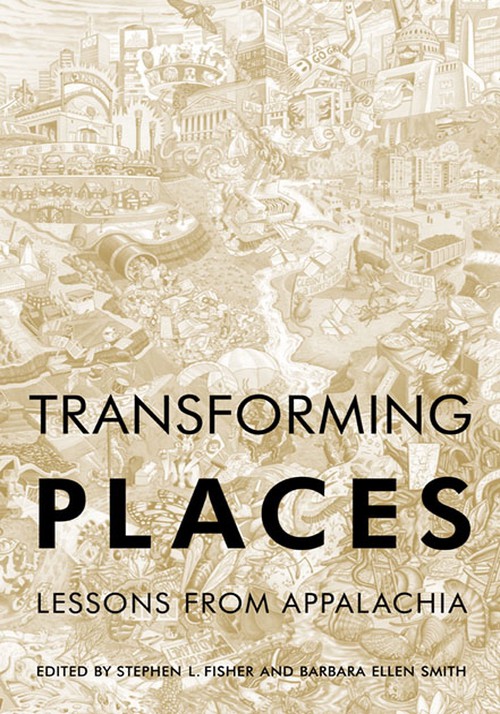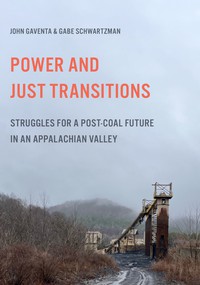
Transforming Places
Cloth: 03/12/2012
About the Book
In this era of globalization's ruthless deracination, place attachments have become increasingly salient in collective mobilizations across the spectrum of politics. Like place-based activists in other resource-rich yet impoverished regions across the globe, Appalachians are contesting economic injustice, environmental degradation, and the anti-democratic power of elites. This collection of seventeen original essays by scholars and activists from a variety of backgrounds explores this wide range of oppositional politics, querying its successes, limitations, and impacts. The editors' critical introduction and conclusion integrate theories of place and space with analyses of organizations and events discussed by contributors. Transforming Places illuminates widely relevant lessons about building coalitions and movements with sufficient strength to challenge corporate-driven globalization.Contributors are Fran Ansley, Yaira Andrea Arias Soto, Dwight B. Billings, M. Kathryn Brown, Jeannette Butterworth, Paul Castelloe, Aviva Chomsky, Dave Cooper, Walter Davis, Meredith Dean, Elizabeth C. Fine, Jenrose Fitzgerald, Doug Gamble, Nina Gregg, Edna Gulley, Molly Hemstreet, Mary Hufford, Ralph Hutchison, Donna Jones, Ann Kingsolver, Sue Ella Kobak, Jill Kriesky, Michael E. Maloney, Lisa Markowitz, Linda McKinney, Ladelle McWhorter, Marta Maria Miranda, Chad Montrie, Maureen Mullinax, Phillip J. Obermiller, Rebecca O'Doherty, Cassie Robinson Pfleger, Randal Pfleger, Anita Puckett, Katie Richards-Schuster, June Rostan, Rees Shearer, Daniel Swan, Joe Szakos, Betsy Taylor, Thomas E. Wagner, Craig White, and Ryan Wishart.
About the Author
Stephen L. Fisher is professor emeritus at Emory & Henry College, where he founded and directed the Appalachian Center for Community Service. Barbara Ellen Smith is professor of women's and gender studies at Virginia Polytechnic Institute and State University.Reviews
"An important, user-oriented document for Appalachia and elsewhere. Highly recommended."--Choice"Engaging and accessible. . . . will win a place on the shelves of scholars, practitioners and activists alike."--West Virginia History
"Transforming Places: Lessons from Appalachia edited by Stephen L. Fisher and Barbara Ellen Smith, is an apotheosis of that Appalachian studies dream. . . . tightly and engagingly told."--Journal of Appalachian Studies
"Transforming Places excels in its ability to hold in tension the heterogeneity of Appalachia and the commonalities between very different strands of resistance."--Cultural Geographies
"The seventeen original essays showcased in Transforming Places chronicle and analyze these diverse struggles in an attempt to answer one driving question: 'Who will control such places, and to what ends?'. . . . The mill might turn drop by drop, as the old song says, but anyone who wants to understand the water of activism is flowing in Appalachia these days--and anyone who would like first person perspectives on how to and how not to build a better mill--could not find a better hand book than Transforming Places."--Now and Then
"As coal dies a hard, fast death, justice work turns to economic transition and encompasses a wide range of other issues, as detailed in the book, Transforming Places: Lessons from Appalachia by Steven L. Fisher and Barbara Ellen Smith." --Justice
Blurbs
"This is an outstanding collection. Using the concept of place as their conceptual lens, Fisher and Smith weave together a series of diverse case studies of grassroots resistance to present a rich tapestry of citizen action in an increasingly globalizing world. This will be of interest to scholars, activists, students, and community leaders, within the Appalachian region and beyond."--John Gaventa, author of Power and Powerlessness: Quiescence and Rebellion in an Appalachian Valley
"I cannot recall a book that has excited me more than Transforming Places. This work is a major step forward in the study of social change, our understanding of 'free spaces,' and local resistance--how people get power and how they can use it to get more."--Richard A. Couto, editor of Political and Civic Leadership: A Reference Handbook





